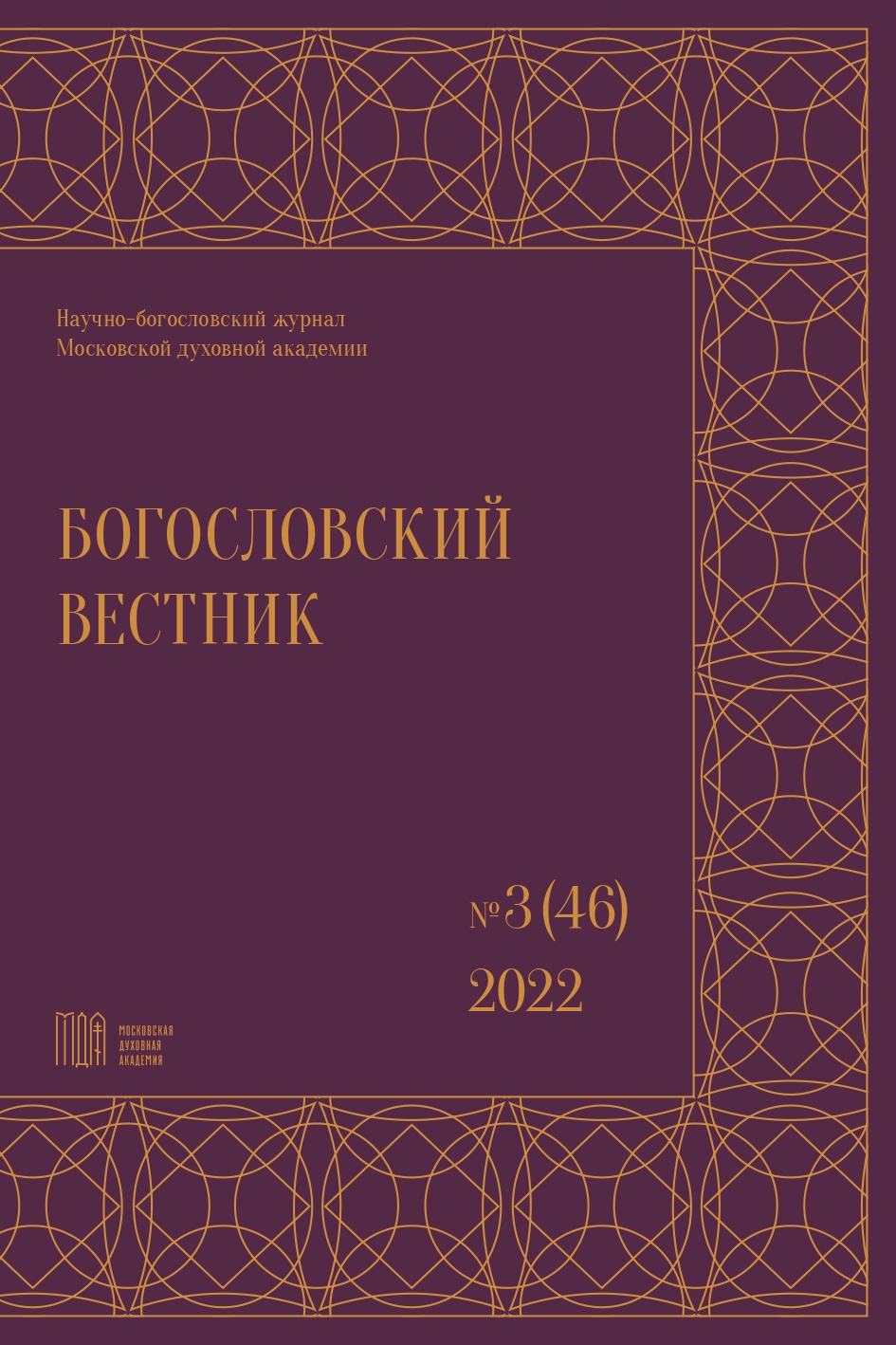Изречение Вода̀ глꙋбока̀ сове́тъ въ се́рдцы мꙋ́́жа, мꙋ́́жъ же премꙋ́́дръ исче́рплетъ ю (Притч. 20, 5) — в контексте литературы Премудрости и церковного Предания
DOI:
https://doi.org/10.31802/GB.2022.46.3.001Ключевые слова:
библейская герменевтика, библейская экзегеза, литература Премудрости, притча, помысел, вода, глубина, мудрый муж, сердце, афоризм, суггестивностьАннотация
В статье рассматривается афоризм из книги Притчей Соломона 20, 5. Данный афоризм уникален, поскольку у него нет прямых аналогов ни в Священном Писании в целом, ни в книге Притчей в частности. Кроме того, ни в Масоретском тексте, ни в переводе Семидесяти нет ясного указания на то, что нужно сделать с помыслом, о котором здесь идёт речь, избавиться от него или реализовать? Вместе с тем отсутствует ясное указание на содержание помысла, каков он, добрый или злой? Исследование этих вопросов составляет проблематику статьи. Чтобы дать на них ответ, авторы используют текстологический анализ, внутрибиблейские параллели и церковную экзегезу. Сравнение помысла с глубокими водами — достаточно редкое для Ветхого Завета, параллельным местом к Притч. 20, 5 является единственный афоризм Притч. 18, 4. Проведённое исследование показывает, что, согласно церковной экзегезе (Ориген, святитель Амвросий Медиоланский, Древний патерик), сопоставление автором притч сердца мудрого мужа с глубокой водой указывает на его духовную зрелость и опыт богопознания. В статье высказывается предположение, что духовная наука — различение помыслов — за много веков до появления христианской аскетической практики получила рождение в дидактической письменности (литературе Премудрости) Древнего Израиля.
Скачивания
Библиографические ссылки
Библия. Современный русский перевод. Москва: Изд. Российского библейского общества, 2017.
Библия. Книги Священного Писания Ветхого и Нового Завета на церковнославянском языке с параллельными местами. Москва: РБО, 1993.
Книги Ветхого Завета в переводе П. А. Юнгерова. Учительные книги / под общ. и науч. ред. А. Г. Дунаева. Москва: Изд. Московской Патриархии Русской Православной Церкви, 2012.
Biblia Hebraica Stuttgartensia. Stuttgart: Deutsche Bibelgesellschaft, 51997. Septuaginta. Stuttgart: Deutsche Bibelgesellschaft, 1979.
Ambrosius Mediolanensis. Sermo decimus. Expositio in psalmum David CXVIII // PL. T. 15. Col. 1329–1348A.
Ambrosius Mediolanensis. Explanatio super psalmos / ed. M. Petshenig. Vindobonae: Tempsky, 1919. (CSEL; vol. 64).
Origenes. Homilien zum Numeri // Origenes Werke / hrsg. W. A. Baehrens. Bd. 7. Leipzig: J. C. Hinrichs, 1921. (GCS; Bd. 30). S. 276–277.
Les Apophtegmes des pères collection systématique chapitres X–XVI / intr., texte critique, trad., et notes par J.-C. Guy. Paris: Les Éditions du Cerf, 2003. (SC; vol. 474).
Амвросий Медиоланский, свт. О девстве // Амвросий Медиоланский, свт. Собрание сочинений: на латинском и русском языках. Т. II. Москва: ПСТГУ, 2012. С. 266–373.
Амвросий Медиоланский, свт. Об обязанностях священнослужителей. Кн. 3 // Амвросий, еп. Медиоланский, св. Творения. Москва; Рига: Благовест, 1995. С. 296–380.
Древний патерик, изложенный по главам. Москва: Планета, 1899.
Графов А. Э. Словарь библейского иврита. Москва: Текст, 2019.
Скобелев М. А., Хангиреев И. А. Введение в Учительные книги Ветхого Завета. Москва: ПСТГУ, 2018.
Словарь библейских образов / под общ. ред. Л. Райкена, Д. Уилхойта, Т. Лонгмана. Санкт-Петербург: «Библия для всех», 2008.
Юркевич П. Д. Сердце и его значение в духовной жизни человека, по учению слова Божия // Юркевич П. Д. Философские произведения. Москва: Правда, 1990. С. 69–103.
Alonso Schëkel L. I Proverbi / trad. e comm. di L. Alonso Schëkel, J. Vilchez Lindez. Roma: Edizioni Borla, 1988.
Waltke B. K. The Book of Proverbs. Chapters 15–31 Grand Rapids (Mich.); Cambridge: Wm. Eerdmans Publishing Company, 2005. (The New International Commentary on the Old Testament).
Загрузки
Опубликован
Как цитировать
Лицензия

Это произведение доступно по лицензии Creative Commons «Attribution-ShareAlike» («Атрибуция — На тех же условиях») 4.0 Всемирная.








